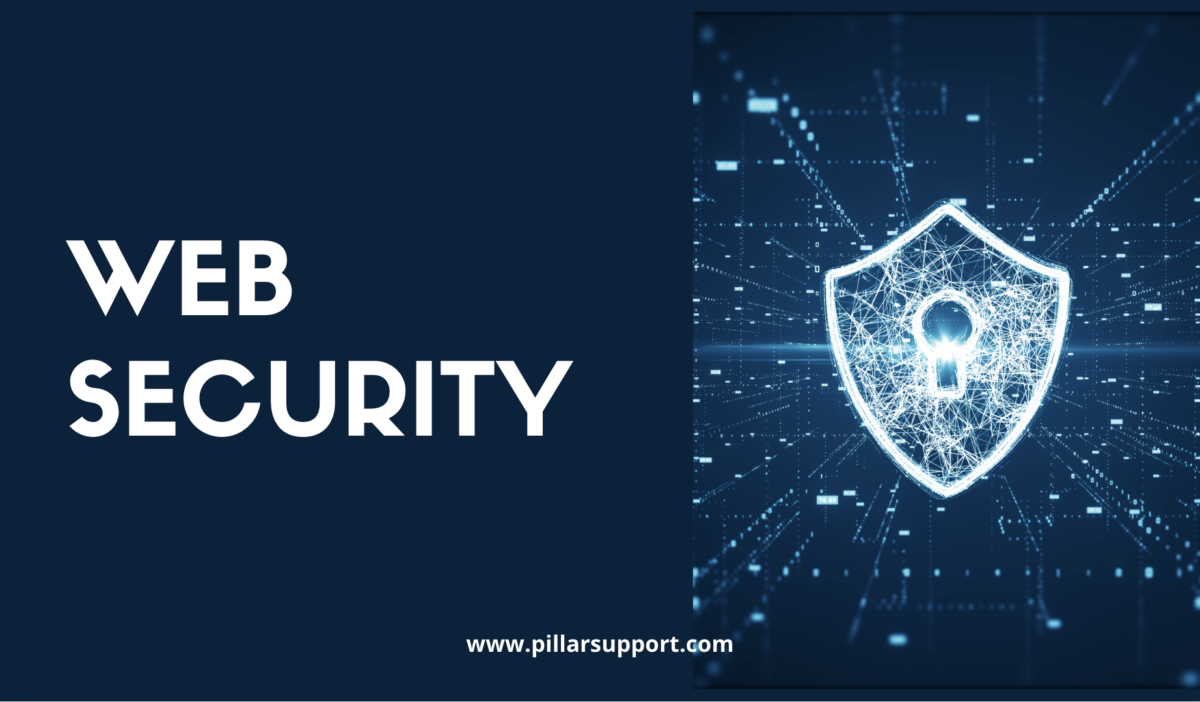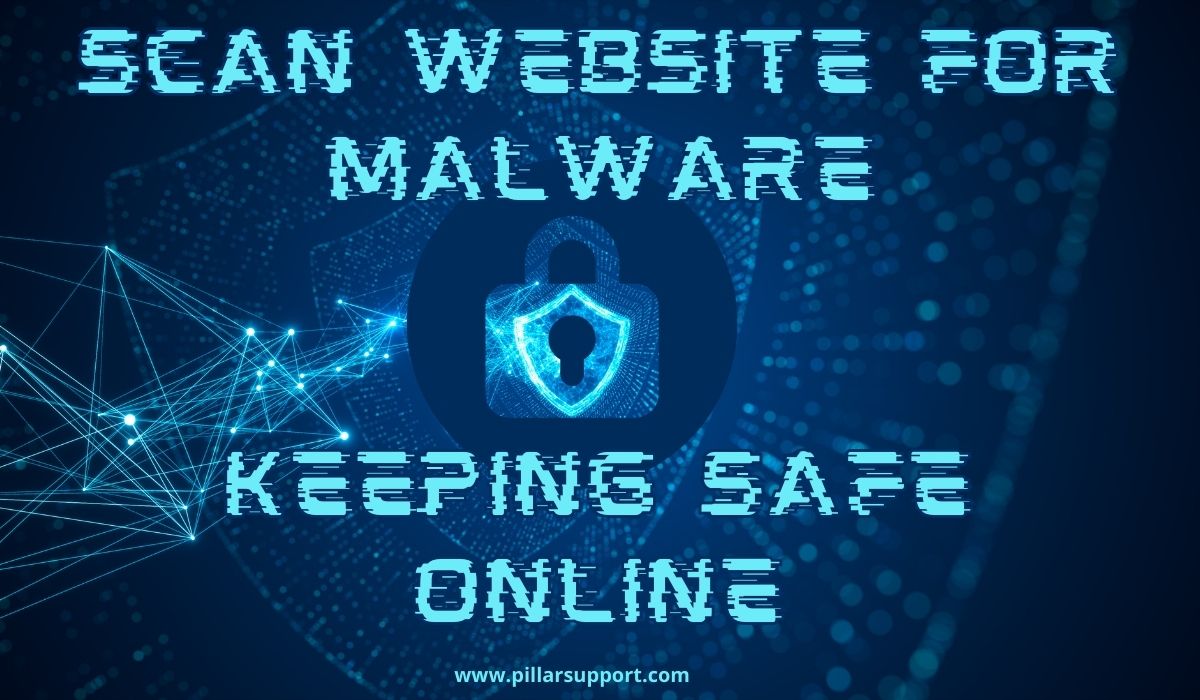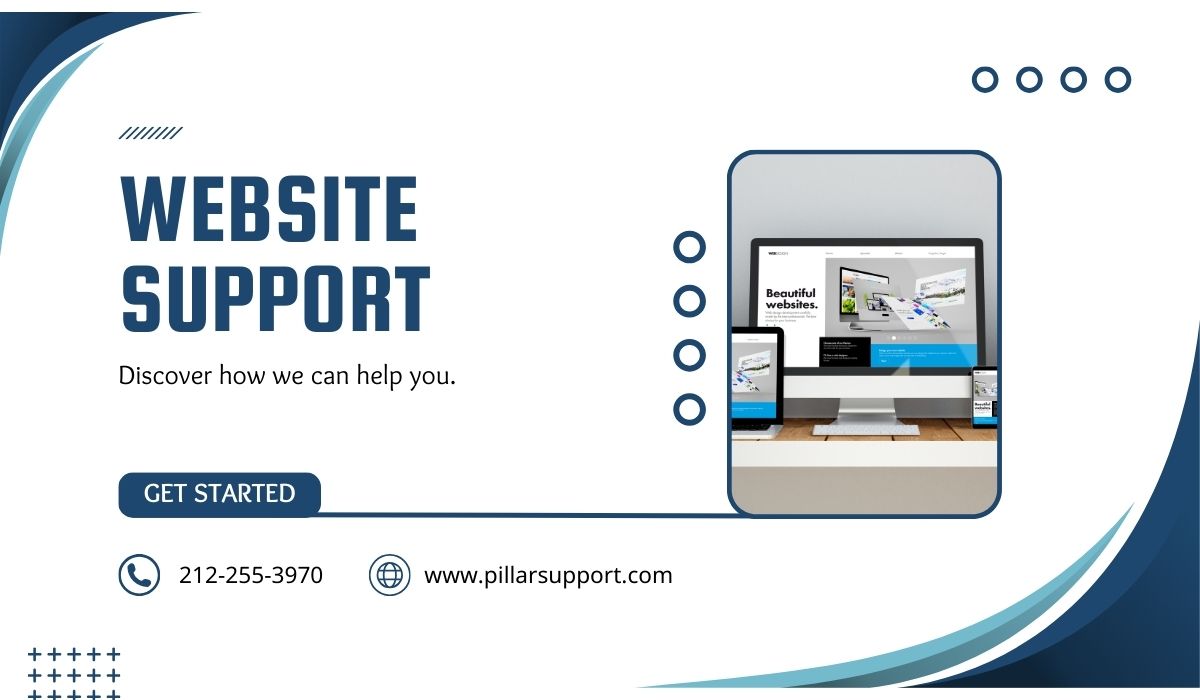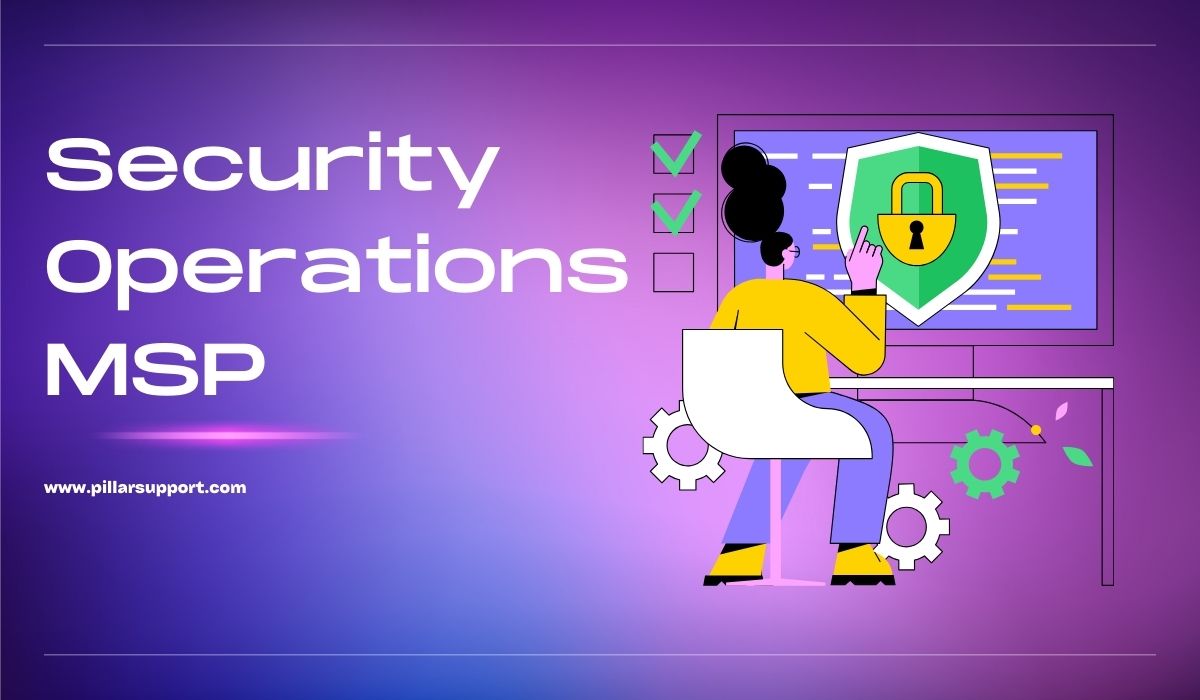Safeguard Your Online Presence: Understanding Web Security
In today’s digital era, web security has become a matter of utmost importance. With the increasing reliance on the internet for various activities, ranging from personal communication to online transactions, the need to ensure the security of websites cannot be overstated. Inadequate web security can expose individuals and organizations to a multitude of risks and consequences that can have far-reaching impacts.
The potential risks and consequences of inadequate web security are significant. From data breaches and financial losses to reputational damage and loss of customer trust, the consequences can be severe. It is crucial for individuals and businesses to understand the criticality of web security and take proactive measures to protect their online assets.
By prioritizing web security and implementing robust security measures, individuals and organizations can safeguard their sensitive information, maintain the trust of their customers, and mitigate the potential risks associated with inadequate web security.
Table of Contents
Understanding Web Security
Web security refers to the practice of implementing measures to protect websites and their users from cyber threats and unauthorized access. It encompasses a range of techniques, technologies, and best practices aimed at ensuring the confidentiality, integrity, and availability of websites and the data they handle.
In today’s digital landscape, web security is of paramount importance due to the increasing frequency and sophistication of cyber attacks. Websites store and process vast amounts of sensitive information, including personal data, financial details, and intellectual property. Without adequate security measures, websites are vulnerable to various threats, such as hacking attempts, data breaches, malware infections, and denial-of-service attacks.
Web security encompasses multiple layers of protection to safeguard websites from these threats. Here are some key measures:
- Secure Communication: Implementing secure communication protocols, such as HTTPS, ensures that data transmitted between the website and users is encrypted and protected from interception or tampering.
- Access Control: Implementing strong authentication mechanisms, such as username/password combinations or multi-factor authentication, helps ensure that only authorized individuals can access the website’s backend or sensitive areas.
- Regular Software Updates: Keeping the website’s software, including the content management system (CMS) and plugins, up to date is crucial. Software updates often include security patches that address known vulnerabilities and protect against potential exploits.
- Firewalls and Intrusion Detection Systems: Deploying firewalls and intrusion detection systems helps monitor and filter incoming and outgoing network traffic, blocking malicious attempts to access or compromise the website.
- Malware Scanning and Removal: Regularly scanning the website for malware and promptly removing any detected infections is essential. This helps prevent malware from compromising the website’s functionality, stealing data, or spreading to users.
- Secure Coding Practices: Following secure coding practices during website development helps minimize the risk of vulnerabilities that can be exploited by attackers. This includes input validation, proper error handling, and avoiding common coding pitfalls.
- User Education: Educating website users about best practices for online security, such as creating strong passwords, being cautious of phishing attempts, and regularly updating their devices, helps mitigate the risk of user-related security incidents.
By implementing these and other web security measures, website owners can significantly reduce the risk of cyber threats and protect their websites and users from potential harm. It is crucial to stay updated on the latest security trends and continuously adapt security measures to address emerging threats in the ever-evolving digital landscape.
Common Web Security Threats
Common Web Security Threats
1. Malware
Malware, short for malicious software, refers to any software designed to harm or exploit computer systems, networks, or websites. It can be injected into websites through vulnerabilities or downloaded unknowingly by users. Malware can steal sensitive information, disrupt website functionality, and spread to visitors, causing financial losses, reputational damage, and legal consequences.
2. Distributed Denial of Service (DDoS) Attacks
DDoS attacks involve overwhelming a website with a flood of traffic from multiple sources, rendering it inaccessible to legitimate users. These attacks can disrupt website operations, lead to downtime, and result in loss of revenue, customer trust, and brand reputation.
3. SQL Injections
SQL injections occur when attackers exploit vulnerabilities in a website’s database by inserting malicious SQL code. This can allow unauthorized access to the database, leading to data breaches, manipulation of data, and potential compromise of sensitive information.
4. Cross-Site Scripting (XSS)
XSS attacks involve injecting malicious scripts into web pages viewed by users. These scripts can be used to steal sensitive information, hijack user sessions, or deliver malware to visitors. XSS attacks can lead to data theft, unauthorized access, and reputational damage.
5. Phishing Attacks
Phishing attacks involve tricking users into revealing sensitive information, such as passwords or financial details, by impersonating legitimate entities through emails, websites, or messages. Phishing attacks can result in identity theft, financial losses, and reputational damage.
6. Unpatched or Outdated Plugins
Plugins are commonly used to extend the functionality of websites. However, if these plugins are not regularly updated, they can become security vulnerabilities. Attackers can exploit these vulnerabilities to gain unauthorized access, inject malware, or compromise the website’s security.
Potential Damage and Disruption
These web security threats can have severe consequences for individuals and organizations:
1. Financial Losses
Web security breaches can lead to financial losses through theft of sensitive information, disruption of business operations, and potential legal liabilities.
2. Reputational Damage
Security incidents can damage the reputation of a website or organization, leading to a loss of customer trust, decreased user engagement, and negative brand perception.
3. Data Breaches
Attacks that result in data breaches can expose sensitive customer information, leading to legal and regulatory consequences, loss of customer trust, and potential identity theft.
4. Downtime and Loss of Productivity
Successful attacks, such as DDoS attacks or malware infections, can cause website downtime, resulting in loss of revenue, decreased productivity, and damage to customer relationships.
To mitigate these threats, it is crucial to implement robust web security measures, regularly update software and plugins, conduct security audits, and educate users about best practices for online security.
Key Components of Web Security
- Firewalls and Antivirus Programs
Firewalls act as a barrier between your website and potential threats, monitoring and controlling incoming and outgoing network traffic. They prevent unauthorized access and filter out malicious traffic. Antivirus programs, on the other hand, detect and remove malware, viruses, and other malicious software from your website and devices. They provide real-time scanning, quarantine infected files, and help keep your website and systems secure.
- Secure Socket Layer (SSL) Certificates
SSL certificates encrypt the data transmitted between a user’s browser and your website, ensuring secure communication. They establish a secure connection, indicated by the padlock icon and “https” in the website URL. SSL certificates protect sensitive information, such as login credentials, credit card details, and personal data, from interception or tampering by encrypting it, making it unreadable to unauthorized parties.
- Regular Security Audits and Vulnerability Scanning
Regular security audits and vulnerability scanning are proactive measures to identify and address potential weaknesses in your website’s security. Security audits involve a comprehensive review of your website’s infrastructure, code, and configurations to identify vulnerabilities and ensure compliance with security best practices. Vulnerability scanning involves using automated tools to scan your website for known vulnerabilities and weaknesses that could be exploited by attackers. These measures help you stay ahead of potential threats and strengthen your website’s security posture.
- User Authentication and Access Control
User authentication and access control play a crucial role in web security. Strong user authentication mechanisms, such as passwords, biometrics, or two-factor authentication (2FA), verify the identity of users accessing your website. Strict access controls ensure that users have appropriate permissions and access only the resources they need. By implementing these measures, you can prevent unauthorized entry and protect sensitive data and functionalities from unauthorized access.
- Data Encryption
Data encryption is the process of converting sensitive information into an unreadable format using encryption algorithms. Encrypted data can only be decrypted with the correct encryption key, ensuring that even if it is intercepted, it remains unreadable to unauthorized parties. Data encryption safeguards sensitive information, such as customer data, financial details, and confidential documents, and adds an extra layer of protection to your website.
By implementing these key components of web security, you can significantly enhance the protection of your website, data, and users, reducing the risk of security breaches and potential damage to your online presence.
Best Practices for Web Security
Here are some best practices for maintaining robust web security:
- Regular Software Updates: Keep your website’s software, including the content management system (CMS), plugins, and themes, up to date. Regularly check for updates and apply them promptly. Software updates often include security patches that address known vulnerabilities and protect against potential exploits.
- Strong Password Policies: Enforce strong password policies for all user accounts on your website. Encourage the use of complex passwords that include a combination of uppercase and lowercase letters, numbers, and special characters. Consider implementing a password policy that enforces regular password updates.
- Two-Factor Authentication (2FA): Enable two-factor authentication for added security. 2FA requires users to provide a second form of verification, such as a unique code sent to their mobile device, in addition to their password. This helps prevent unauthorized access even if passwords are compromised.
- Employee Training and Awareness: Educate your employees about web security best practices. Train them on how to identify and avoid phishing emails, suspicious links, and potential security threats. Regularly update them on emerging threats and provide ongoing security awareness training.
- Secure Data Handling: Implement secure data handling practices, such as encrypting sensitive data, both in transit and at rest. Use secure protocols, such as HTTPS, for data transmission. Regularly backup your website’s data and store backups securely.
- Access Control and User Permissions: Implement strict access controls and user permissions. Grant access only to authorized individuals who need it for their specific roles. Regularly review and update user permissions to ensure they align with current requirements.
- Web Application Firewall (WAF): Consider implementing a web application firewall to protect your website from various types of attacks, including those targeting vulnerabilities in your CMS or plugins. A WAF can detect and block malicious traffic, providing an additional layer of defense.
- Regular Security Audits: Conduct periodic security audits to identify and address potential vulnerabilities in your website’s infrastructure, code, and configurations. Regularly scan your website for malware and vulnerabilities using automated tools.
- Secure File Uploads: Implement proper validation and filtering mechanisms for file uploads to prevent malicious files from being uploaded to your website. Restrict file types and sizes to minimize the risk of security breaches.
- Incident Response Plan: Develop an incident response plan that outlines the steps to be taken in the event of a security incident. This plan should include procedures for detecting, containing, and mitigating security breaches, as well as communication protocols for notifying affected parties.
By following these best practices, you can significantly enhance the security of your website and protect it from potential threats. Remember to stay updated on the latest security trends and continuously adapt your security measures to address emerging threats.
Pillar Support: Your Trusted Web Security Partner
Pillar Support is a leading provider of comprehensive web security solutions, dedicated to fortifying your online assets against cyber threats. With our expertise and experience in the field of web security, we offer tailored services to protect your website and ensure the safety of your digital presence.
Our team of highly skilled professionals specializes in web security and has a deep understanding of the evolving landscape of cyber threats. We stay updated with the latest security trends, techniques, and best practices to effectively safeguard your website from potential vulnerabilities and attacks.
At Pillar Support, we offer a range of web security solutions designed to meet the unique needs of each client. Our services include regular security audits, vulnerability assessments, malware scanning and removal, implementation of secure protocols, and user authentication mechanisms. We also provide employee training and awareness programs to empower your team with the knowledge to identify and mitigate potential security risks.
With Pillar Support as your trusted web security partner, you can have peace of mind knowing that your online assets are in safe hands. We prioritize the security and integrity of your website, allowing you to focus on your core business activities without worrying about cyber threats.
Choose Pillar Support as your trusted web security partner and let us fortify your online assets against cyber threats. Contact us today to discuss your specific security needs and take the first step towards a secure digital presence.
Secure Your Online Presence with Pillar Support
Ready to secure your online presence and protect it from cyber threats? Take action now and engage Pillar Support for top-notch web security services.
Visit our website at www.pillarsupport.com to learn more about our comprehensive web security solutions. Fill out the contact form on our website or reach out to our team directly at [212-255-3970] or [info@pillarsupport.com] to discuss your specific security needs.
Don’t leave your online assets vulnerable to cyber attacks. Trust Pillar Support as your dedicated web security partner and ensure the safety and integrity of your digital presence. Contact us today and let us help you secure your online presence with our expertise and experience in web security.
Frequently Asked Questions
What is Used for Website Security?
Website security involves the use of various tools, technologies, and practices to protect websites from cyber threats. Some common tools and measures used for website security include firewalls, antivirus software, secure socket layer (SSL) certificates, secure coding practices, access control mechanisms, regular security audits, and vulnerability scanning.
What is the Difference Between Cyber Security and Web Security?
Cyber security is a broader term that encompasses the protection of all digital assets, including networks, systems, devices, and data, from cyber threats. It includes measures to safeguard against unauthorized access, data breaches, malware infections, and other cyber attacks. Web security, on the other hand, specifically focuses on securing websites and their associated components, such as web applications, databases, and web servers, from web-based threats.
What is the Best Security for a Website?
The best security for a website involves implementing a multi-layered approach that combines various security measures. This includes using firewalls to prevent unauthorized access, antivirus software to detect and remove malware, SSL certificates to encrypt data transmission, secure coding practices to minimize vulnerabilities, access control mechanisms to manage user permissions, regular security audits to identify weaknesses, and staying updated with security patches and updates.
How do I Check My Website Security?
There are several ways to check your website security:
1. Perform a vulnerability scan: Use automated tools to scan your website for known vulnerabilities and weaknesses that could be exploited by attackers.
2. Conduct a security audit: Review your website’s infrastructure, code, and configurations to identify potential security vulnerabilities and ensure compliance with security best practices.
3. Test for malware: Use reputable malware scanning tools to scan your website for any malware infections.
4. Check for SSL certificate: Verify that your website has a valid SSL certificate installed and is using HTTPS for secure communication.
5. Monitor website logs: Regularly review your website logs for any suspicious activities or unauthorized access attempts.



